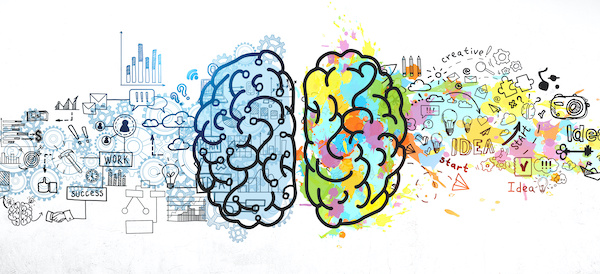Whenever our family watches a superhero movie, inevitably we ask each other, “What would you want your superpower to be?” My wife always chooses the classic ability to fly. My son invariably requests multiple powers so he doesn’t have to choose, while my answer has always been the ability to read the bad guy’s mind.
Most recently, when I shared my superpower wish, my son said, “You know, dad, you can already do that, at least with your own. Not that you’re a bad guy,” he added thoughtfully.
Reasonably certain of my inability to read minds, I asked him what he meant.
He said, “I thought you helped people become more self-aware … isn’t that just reading your own mind?”
I was floored; he was right. While it’s a sweeping statement, I think it’s safe to say that everything we do with leaders, teams and organizations at Emergent begins with self-awareness. I realized there’s no better place to practice my mind-reading superpower than in the pursuit of self-awareness, raising my own consciousness and reflecting on my own thoughts, feelings and actions.
This idea took root most recently while conducting an Emotional Intelligence webinar. Like most people, we at Emergent are practicing social distancing and delivering the majority of our coaching and training via Zoom. While we are truly fortunate to have robust technology to keep us connected, I cherish the high-touch connection of live, in-person coaching and training so much more, and was highly aware of that preference going into the webinar. I recognized that I had an opportunity to make connection happen and not fall victim to my preferences. I chose to: 1. Be aware of my preferences, 2. Be aware that I wasn’t able to have it quite the way I wanted it, and 3. Seek ways to create more connection than I normally may have allowed myself due to what I was seeing as limitations in connection. This resulted in one of the best webinar experiences I’ve had, and I believe the participants truly enjoyed and learned from the overall experience better than past experiences.
I didn’t want my self-mindreading to stop there, so I reflected on the experience and came to the following realizations:
- The topic of Emotional Intelligence (EI) starts with self-awareness. It was no coincidence that I practiced higher levels of EI in this specific webinar; recognizing how our emotions affect our performance is the heart of self-awareness.
- Performance is a result of how things are structured. I know EI well enough to know that the structure starts with self-awareness, but that’s not enough. My performance is related to how I manage and use my awareness of my emotions, which is self-management. How flexible will I allow myself to be to try new approaches? What do I really want to achieve? How will I manage and control my emotions for the best outcomes, all while holding a positive outlook for myself and the situation?
- Within EI we have the opportunity to ultimately relate to others more effectively. This is the “social” aspects of EI. I realized everyone tuning into my webinar was in a similar situation as me … they were working from home with a myriad of distractions and concerns for their work, their organizations and their teams. I empathized with the participants and quickly related in a way I have not done before, allowing me the connection I was hungry for!
- The previous three points culminated in the best relationship management opportunities I could have hoped for with this venue and purpose. I was in my wheelhouse with coaching and mentoring the participants, influencing their thoughts and (hopefully) future actions considering the training elements. Most importantly, I showed up more inspirational than I normally may have, due to feeling more connected and not focusing on my preference for being present in the space with those I am training.
This “lack” of connectedness doesn’t have to be a barrier or hindrance, if we more fully lean into our feelings and emotions and read our own minds to better understand ourselves and others in this time of social distancing. I yearn for more personal connection, but I’ll also allow myself to know myself better and grow in this time by reading my own mind more clearly.
If you want to know more about emotional intelligence, coaching, or any of our leadership and team development offerings, please reach out … I’d love to connect with you!

Comments (1)
Bill,
My wife is a “social exerciser.” She only likes to run or walk with other people. Usually she makes a date to meet a friend and walk with the dog.
Now with social distancing, she has discovered that she can walk with friends who don’t live nearby. She can wear earbuds and talk to her friend who lives in Boston, or her mother who is in Pennsylvania – they all like to walk.
Using a simple telephone or Zoom meeting has suddenly improved relationships with distant friends or relatives. Why didn’t we think of this before?
Love your columns.
Jef